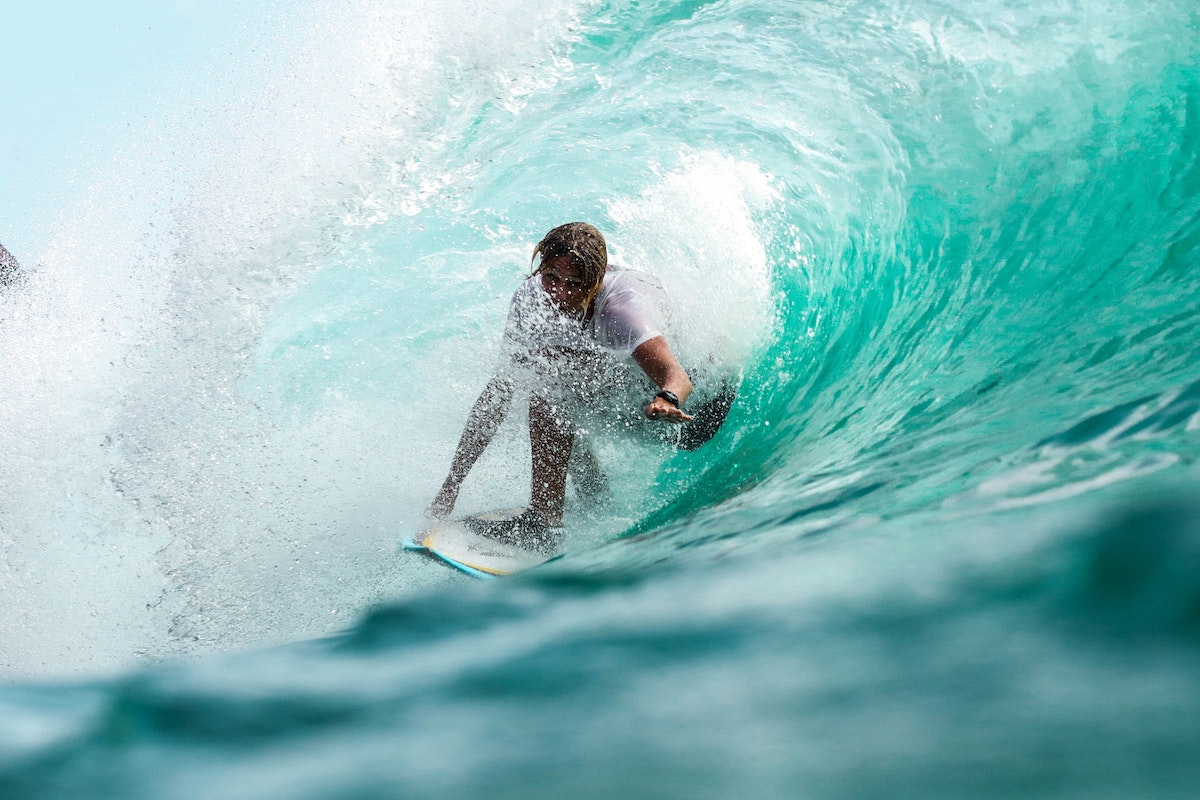Surfing to Recover
The ocean can be a beautiful and intimidating place. Deep water and crashing waves contribute to the scenery, but they may result in a feeling of unease and loss of control. In a way, these concerns translate to your life in early recovery; after leaving treatment, we find ourselves in a world full of opportunities, uncertainties, and obstacles. Fortunately, there is a lifechanging therapy that can help you to navigate life’s challenges while overcoming your fears: surfing.
For those recovering from addiction, surfing can be a highly effective path for treatment. Surf therapy promotes improved concentration, inner strength, and a sense of self-sufficiency. Today on the blog, we explore how surfing can help you to overcome addiction for years to come.
Be in Tune with Yourself
One of the best lessons we get from surfing is a deep knowledge of ourselves and our bodies. Every aspect of this experience is an exercise in balance, intuition, and faith. When you first paddle out into the surf, you probably don’t feel terribly sure of yourself. This is representative of how we feel in early recovery. However, as you learn and continue trying to improve, you’ll notice that you’ve developed a keen sense of confidence and competence.
Dedicating time and effort to your recovery provides insight and strength that can help you to stay sober for years to come. Listening to your body is a key component of this – being in tune with yourself allows you to assess your mental and physical health, overcome cravings, and identify early warning signs of relapse. Surfing is a remarkable way to build this personal awareness.
Take Calculated Risks
Surfers are masters of calculated risk. They assess conditions, measure waves, and decide when to hop onto the board (and when to let a weak wave pass by). These skills translate directly to your life in recovery.
When you’re addicted to drugs and alcohol, your ability to protect yourself is compromised. Substance use affects your decision-making; when you’re in the throes of addiction, it’s possible to say and do things you normally wouldn’t. After you’ve begun to recover, it can be challenging to get back to normal. You may be fearful of certain aspects of a sober lifestyle, like going to gatherings without relying on substances to assuage your anxiety. You might also be worried about new experiences like discussing your addiction at 12-Step meetings.
Surfing can help you to overcome these anxieties. By taking chances, you will learn to evaluate situations for their risks and benefits. For example, is it worth a certain level of discomfort to progress your recovery in a meeting? Yes, of course it is. But is it worth it to attend an event where triggering people or substances will be present? No, it’s not. We hope that participating in our surf experience will help you to quickly assess life’s challenges in early recovery.
Deal with Challenges
Surfing is also an excellent way to process some of life’s toughest challenges. Whether you’re successful or having trouble in the water, you’ll experience a wide array of emotions, including exhilaration, disappointment, loss of control, anxiety, and pride. These strong feelings can be difficult to handle on your own. Surfing gives you a safe place to really feel each impulse and get in touch with yourself, all with an experienced instructor nearby to coach you through it.
Build Self-Trust
When you’re on the water, you have to have faith in yourself. To stay upright on the board, you need to paddle out into the ocean, determine your comfort level, and believe that you can ride the wave. Any surfer will tell you that nervousness is one of the biggest setbacks to becoming successful. Self-doubt will cause you to bail on waves, fall off the board, or freeze in place a few feet out. As you gain experience and confidence, you will learn to trust yourself on the water.
These lessons translate directly to your daily life. Addiction sabotages your relationships, not just with others, but with yourself. Substance use may have caused you to act in ways counter to your character – lying, stealing, and behaving badly are common staples of addiction. It can be tough to even know who you are anymore. You may live in fear of relapse, doubting your ability to navigate life’s challenges or worrying about whether you will ever get better.
Surfing can help you to learn self-trust, which is integral to recovery. Believing in your ability to handle any obstacle is half the battle. When you are able to draw from this well of inner strength, you may be surprised by how drastically your life changes.
Let Go
Finally, surfing teaches you how to let go. Your inhibitions, ghosts from your past, and anxieties about the future have no place in the ocean. If you focus on these things, you’re going to have a very difficult time in the surf. You’d be distracted and miserable. Similarly, those worries don’t belong in your recovery. Focus on the task at hand and believe that you are capable of handling whatever life throws at you. If you need any support, we’re here for you every step of the way.
Ride the Wave with Augustine Recovery
At Augustine Recovery, we provide innovative holistic therapies like surfing, yoga, mindfulness, and personal training. Our highly experienced trainers will help you to work through your struggles and plan for the future. For more information about our clinically sophisticated programs, please contact us today.





